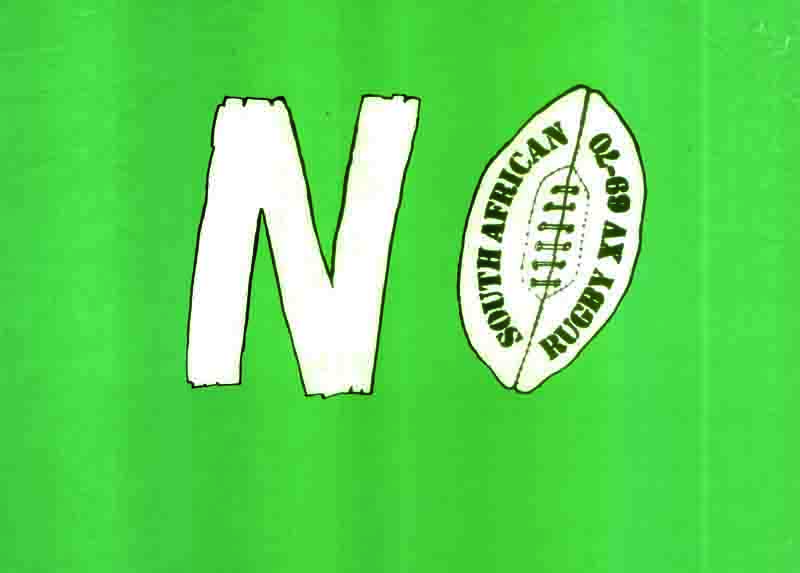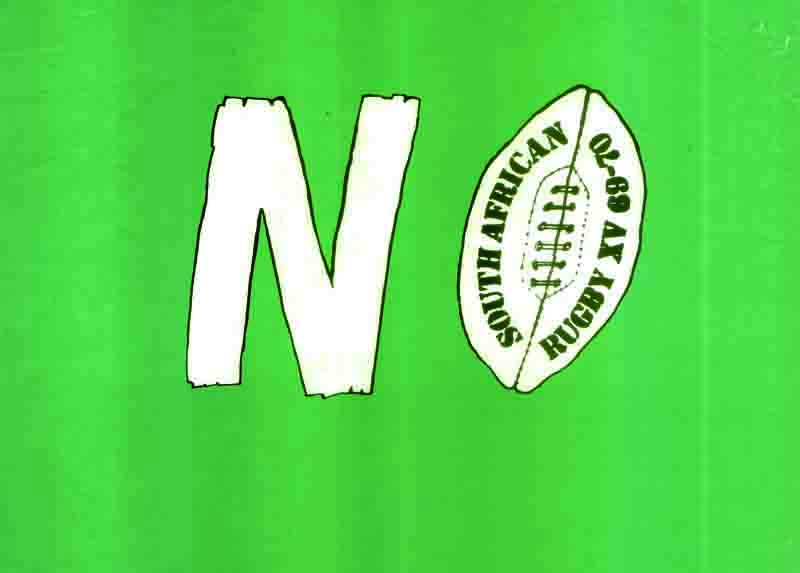“Sport has the power to change the world.” These memorable words of Nelson Mandela will be the leitmotif for a conference about the role of archives in defending and promoting human rights to held in Girona (Catalonia) in May. Here literary archivist David Sutton reflects on the role that sport played in the Anti-Apartheid Movement of the 1970s and 1980s and the importance of archives to documenting actions and their role in political change.

At an international conference to be held in Girona in May, on the subject of Archives, Sport and Human Rights, speakers will reflect upon the often-controversial relationship between sport and human rights. The topic is currently the subject of news stories such as the response of sports administrators to the Russian invasion of Ukraine, the awarding of the football World Cup to Qatar, and the ownership of Newcastle United – and in fact it is rarely out of the news.
The conference is being jointly organised by the Section on Sports Archives and the Section on Archives and Human Rights of the International Council on Archives and will focus especially on the sources which enable the historical study of human rights issues within sport, and the many campaigns, boycotts and activist movements which have been organised – usually in the form of protests against particular sporting events.
As the conference programme notes, “Racism, sexism, deceit, hate crimes and many other actions that affect people’s rights can be identified through the documents that make up the archives linked to the world of sport. At the same time, there are documents that refer to the positive development of these rights, such as integration and social cohesion, education, equality and democracy.”
My own presentation at the conference will discuss archival evidence for the role of sport in the anti-apartheid movement, and it will draw upon my experience of research on archives, personal papers and archival locations, as well as my small personal role in anti-apartheid campaigning from the 1960s to the 1980s.
I am especially interested in the archival sources in connection with sport (most notably rugby union, cricket and the Olympics). Sports events provided one of the most high-profile areas for protests against apartheid, and (as with many repressive regimes to this day) sport played an important role in attempts to legitimise and normalise the brutal white supremacist regime in South Africa.
So what do the archives tell us, and which papers are absent from which archives?
My presentation begins with a review of the Archive of the Anti-Apartheid Movement itself (held in the Bodleian Library, Oxford), and compares it with papers about sports protests in the Archive of the Wales Anti-Apartheid Movement, the Non-Racial Sports History Project (in the University of the Witwatersrand) and the African Activist Archive (in Michigan State University). These formal archives are rich in ephemera, in posters and leaflets, in minutes of committee meetings, and in formal letters; but they tend to lack the immediacy and the ‘inside story’ effect which is found in personal papers.
In particular, the hospitality of the National Library of Wales has enabled me to compare and contrast the official archive of the Wales Anti-Apartheid Movement and the personal archive of the activist (and later Labour MP for Neath) Peter Hain. Hain’s marginal notes, handwritten memos, and even secret notes about ‘safe houses’ near sports grounds to be picketed, provide a vivid sense of the realities of anti-apartheid campaigning.
There are other fascinating personal archives to be described, notably the papers of the two leading activists of SAN-ROC (the South African Non-Racial Olympic Committee), Sam Ramsamy (whose papers are mostly in the University of the Western Cape), and the poet Dennis Brutus (whose papers are in Northwestern University, USA; and two British university libraries, at York and Brunel).
The significance of sport in the movement against apartheid is a keynote of the presentation – its importance to the South African regime (in what is often known as ‘sportswashing’) and its importance as an effective area of protesting and campaigning against apartheid. And a strong message to my fellow-archivists concerns the importance of personal papers in understanding major historical topics.
The conference programme can be found here: https://esportarxiu.ddgi.cat/en/
Dr David Sutton FRSA FRSL is a Visiting Research Fellow, responsible for research projects based in the University Library, including the WATCH copyright project, the literary manuscripts Location Register, and the Diasporic Literary Archives project.

